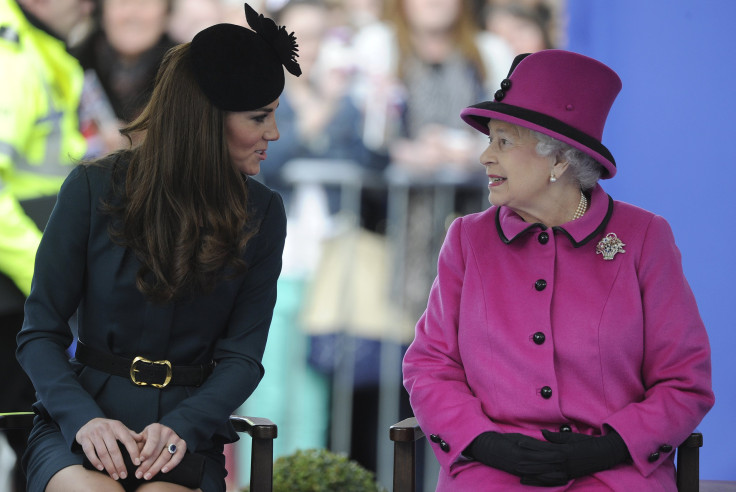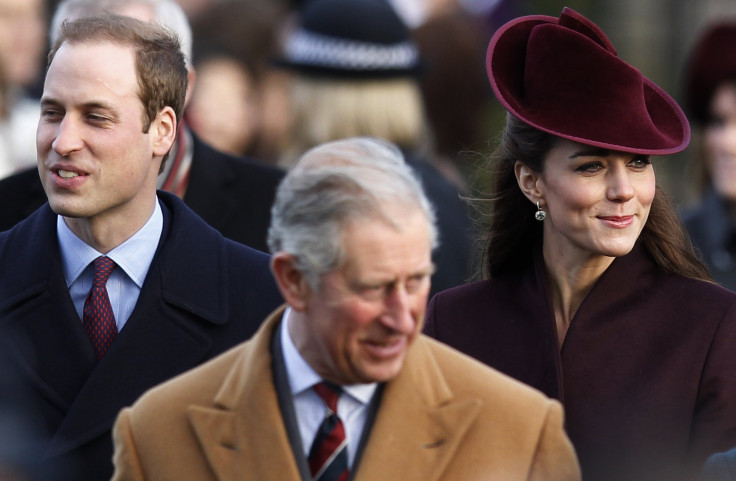Will The Queen Step Down? As Sick Monarch Delegates Duties To Kate Middleton, Abdication Wouldn't Be Abnormal

Despite Queen Elizabeth II having no official plans to abdicate from the throne, rumors have been swirling around her health and what’s next for the succession of the royal family as the longest-reigning living monarch battles the 14th day of a reported heavy cold. The news follows a Buckingham Palace report the 90-year-old queen is stepping down as patron from at least 25 charities – though she remains a leader in well over 500 other national organizations.
The Palace was quick to confirm Queen Elizabeth II’s intention to remain an active patron in the vast majority of her charitable work, while handing a small portion to Catherine, the Duchess of Cambridge and other members of the royal family. "Her Majesty will continue to serve as patron to hundreds of charities and institutions but will now share this work with her family," the Palace reported in a statement Dec. 21, 2016. "Many of the organizations listed below already have other members of the Royal Family as vice-patrons or presidents which will ensure a smooth transition."

The possibility of a sitting monarch abdicating from the throne may seem like an unprecedented phenomenon, but it’s really nothing new. In fact, many monarchs around the world have abdicated in their older age to pass on power to younger members of their family. Of the 44 sovereign monarchies worldwide, 36 royals have abdicated in modern history, including 20 traditional abdications (in which a younger member of the royal family assumes the throne). The minority of these abdications are more controversial, including seven cases of the king or queen being forced into exile, and eight cases abolishment.
2016 was a major year for the queen, who celebrated turning 90 as well as becoming the longest-serving monarch globally after the death of Thailand’s King Bhumibol Adulyadej. The year was also a turning point for the royal family, as Queen Elizabeth II reached her apparent twilight, with the Duchess of Cambridge and Duchess of Cornwall continuing to ramp up their charity work and involvement in the public eye. The apparent shift in focus and domestic power seemed to follow a tradition for aging members of the royal family to transfer responsibilities to the next generations.
"This decision follows the example set by The Duke of Edinburgh who resigned from a number of patronages on the occasion of his 90th birthday in 2011," the Palace continued.
If Queen Elizabeth II did decide to abdicate from her position, the throne would be left to Prince Charles, who would become the next king – the first king since 1952. Whether he decides to ceremoniously title his wife, the Duchess of Cornwall Camilla Parker Bowles, the next queen would be left entirely up to the royal family, with the final decision being made by the prince. However, the move could ultimately cause a constitutional crisis in the family in some ways similar to that of King-Emperor Edward VIII’s abdication in 1936, when he left the throne to wed American divorcee and socialite Wallis Simpson.
Among the patron roles being transferred to Kate Middleton include several charities focusing on children’s welfare including Save the Children U.K. and the National Society for the Prevention of Cruelty to Children, as well as the Wimbledon tennis tournament.
"It was a great honor to welcome Her Majesty to Wimbledon in 2010 and we remain immensely proud of her role in the history of the club and the championships," Wimbledon said in a statement released following the transfer of power. "We would like to welcome HRH The Duchess of Cambridge, who will take up The Queen’s former duties as our patron."
Meanwhile, the Duchess of Cambridge’s husband Prince William will assume the role of patron to the governing body overseeing the national sport of rugby, the Rugby Football Union.
© Copyright IBTimes 2024. All rights reserved.






















